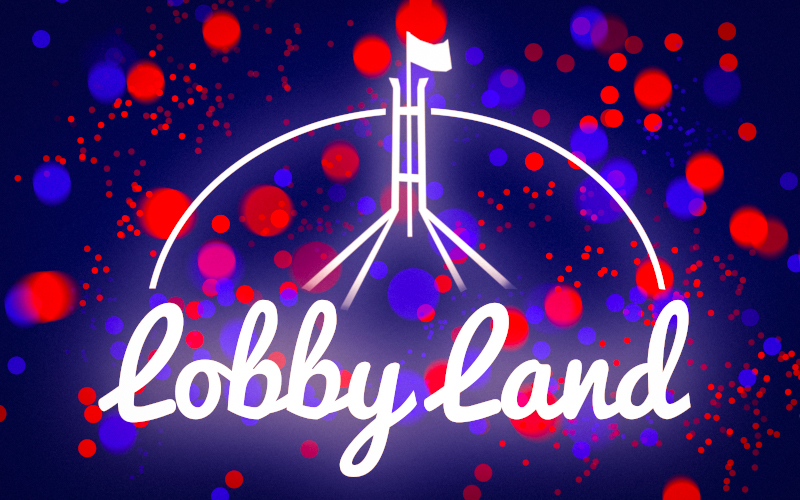The resources industry donated $136.8 million over two decades to Australian political parties. Donations buy a lot of influence, with research showing that for every US$1 spent, the return on investment can be as high as US$220. In return, public policy is routinely moulded to suit the highest corporate bidders and their lobbyists. Adam Lucas investigates.
Forty years of neoliberal and neoconservative dominance of mainstream politics have just about destroyed the ability of citizens to hold the powerful to account.
As noted by academic George Rennie, ‘[Australian] law makes it almost impossible to prosecute corruption, owing to difficulties with investigation, evidentiary rules and the burden of proof.’
For evidence one has only to look at the increasing frequency of political scandals relating to poor governance, conflicts of interest, maladministration and corruption within state and federal Coalition. Yet Coalition MPs no longer feel any obligation to explain or even excuse behaviour involving unethical or illegal activities.
A handful of recent scandals
Here is just a handful of recent examples of the Coalition’s antipathy to accountability in the face of overwhelming evidence of culpability:
- The Robodebt debacle, which caused massive community suffering and cost taxpayers hundreds of millions of dollars, but cost nobody their job.
- Prime Minister Scott Morrison’s refusal to reveal his office’s role in the $100 million ‘sports rorts’ affair;
- Federal Energy Minister Angus Taylor’s mysterious inability to acknowledge the source of the forged documents of travel expenditure by Sydney City Council.
- NSW Premier Gladys Berejiklian intimate association dating back years with a disgraced former MP who, it turned out, had been arranging property deals for commission, even as a backbencher.
- NSW Deputy Premier John Barilaro’s and former NSW Arts Minister Don Harwin’s pork-barrelling of Coalition electorate funding during the 2019 election campaign. (Premier Berejiklian recently admitted that such “political” allocation is standard practice).
- NSW Treasurer Dominic Perrotet’s continuing efforts to avoid responsibility for the ICare debacle;
- The $30 million Leppington Triangle land purchase that benefited a political donor, but brought no resignation.
Hollow words and defanged institutions
To ensure there are no obstacles to its (mal)administration, the Coalition has eviscerated and further hollowed out the investigative and regulatory bodies that could hold it to account, leaving us with no protection from its whims, incompetence, venality and bad faith.
Starving the watchdogs, a favoured strategy in the US, is one that the Coalition has faithfully emulated here in Australia.
In the not-so-recent past, all the above scandals would have involved immediate sackings and/or the resignations of those involved. Instead, we are now subjected to a nauseatingly familiar set of talking points from the Coalition playbook.
- Deny there was any problem in the first place.
- Dissemble about who was responsible if the evidence of malfeasance is overwhelming.
- Deflect the criticism back on to the critics and victims.
Combined with a largely servile corporate media, we might well ask ourselves: has conventional politics in Australia become so debased that the vast majority of its citizens are completely irrelevant politically?
Thanks to former communications minister Malcolm Turnbull (who now appears to regret what he did) media ownership is now even more concentrated than it was before the Coalition was returned to power in 2013.
Rupert Murdoch and his media flunkies appear more dedicated than ever to marginalize any efforts to hold the Coalition to account on any issue, while repaying the Australian people for their generous support of his media empire by shutting down most of NewsCorp’s regional newspapers.
Nine Entertainment placates the dulled sensibilities of Morrison’s ‘quiet Australians’ through its hollowed out news and current affairs coverage, and Kerry Stokes ensures that Seven West Media promotes the views of those same ‘quiet Australians’ while scrupulously avoiding any public revelations concerning his many conflicts of interest.
Corporate capture of decision-making
The extent to which government decision-making has been captured by corporate interests is shocking, scandalous and almost certainly unprecedented in modern Australian history.
It’s shocking and scandalous because Australian public policy is now routinely moulded to suit the interests of the highest corporate bidders and the lobbyists who represent their interests.
It’s unprecedented because estimates of how much money was spent on lobbying by Australian peak bodies and advocacy groups in 2015-16 ranged from $400 million to $700 million. After analysing the financial statements of 20 of Australia’s major business lobbies, Michael West found almost $2 billion had been spent by them on lobbying between 2014 and 2017.
Research on lobbying in the US from more than 10 years ago found that for every US$1 spent, the return on investment can be as high as US$220. This accords with Cameron Murray and Paul Fritjers’ findings in Game of Mates (2017), and another study by US economists which found that 65% of Australia’s billionaires owe their wealth to political favours.
According to the federal lobbyist register (which is itself inadequate), there are 571 lobbyists working the halls of the Australian Parliament. More than 200 are former government representatives, including 25 former politicians and more than 40 former political staffers who worked for ministers. This time last year, there were 884 lobbyists working for 279 firms on behalf of 3,691 clients. The actual number of federal lobbyists is more like 2,400. That’s more than 10 lobbyists for each of the 227 current members of Federal Parliament.
You can trust ‘us’, right?
Thanks to changes in donation disclosure thresholds introduced by John Howard, the political parties don’t have to declare the sources of any donations under $14,300, or to aggregate donations from single donors, or to declare the source of donations from so-called ‘associated entities’.
The Centre for Public Integrity reported that the major parties have received more than $1 billion in undisclosed income since 1999. That constituted about 40% of the Coalition’s income over two decades and about 28% of Labor’s income over the same period, or 36% of total party financing.
In other words, we citizens have no way of knowing from where one-third of the major parties’ revenue originated. Organized crime syndicates, the fossil fuel and gambling industries, and hostile foreign governments could have been funnelling dirty money through Labor and the Liberals, and the public would be none the wiser.
What we do know is that in 2018-19, the Liberals declared income of $165 million and Labor $126 million. Over the two financial years between 2015 and 2017, both parties received more than $100 million in donations from undisclosed sources.
In the second largest single donation in Australia’s political history, the Liberal Party received $4.1 million from a Sydney property developer before the 2019 election. In the lead up to the same election, oil and gas giant Woodside gave $135,400 to Labor, $136,750 to the Liberals, and $11,190 to the Nationals. According to the Australian Conservation Foundation, the fossil fuel industry’s declared donations to the major parties during the election were $1.89 million.
Then there was Clive Palmer’s donation’ of $83.3 million to the Palmer United Party for a nationwide advertising blitz to trash-talk Labor. Malcolm Turnbull’s donation of $1.75 million to the Liberal Party from his personal fortune. Surely that couldn’t have influenced the outcome of the 2016 Federal Election (which he narrowly won!). And why would anyone believe that the Tasmanian gaming industry’s donation of $400,000 to the Tasmanian Liberal Party could possibly affect its policies regarding the future of poker machines? Or that the $17.5 million spent by the Minerals Council of Australia ensured Kevin Rudd’s super mining profits tax never saw the light of day?
While the Coalition has zero interest in tackling any of these issues, unfortunately, the ALP has not covered itself in glory. Even though it has voted in the Senate to support federal legislation to establish a national integrity commission with teeth, it has blocked the Greens’ efforts to establish better controls and more transparency around political donations at the state and federal levels.
Peas in a pod: Labor, Coalition join forces to weaken political donation laws
What needs to be done
We can start by demanding that our parliaments are empowered to once again scrutinize the activities of sitting governments; we can familiarize ourselves with the eminently sensible recommendations for political reform; and we can get involved to build the political momentum for lasting change to push for strong, uniform, national laws concerning lobbying, political donations, electoral campaign expenditure, revolving door appointments and an independent national integrity commission.
This is an edited version of an article first published on Pearls and Irritations.
Dr Adam Lucas is a senior lecturer in the School of Humanities and Social Inquiry at the University of Wollongong. His research interests include climate change and energy policy, the corporatization of public institutions, and global tax avoidance. He is also currently co-investigator on a historical research project with colleagues at the University of Glasgow into the first energy transition from waterpower to steam and coal in the British textile industry. Prior to taking up his current position at UoW, he worked as a researcher and policy analyst for the New South Wales Government in The Cabinet Office, State and Regional Development, Aboriginal Affairs and Housing. As a founding member of Public Universities Australia and Academics for Public Universities, he has also published extensively on the reform of Australia's higher education system.

